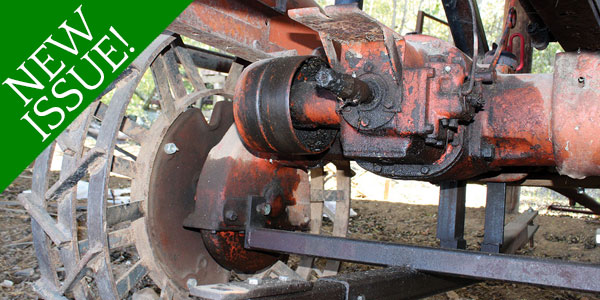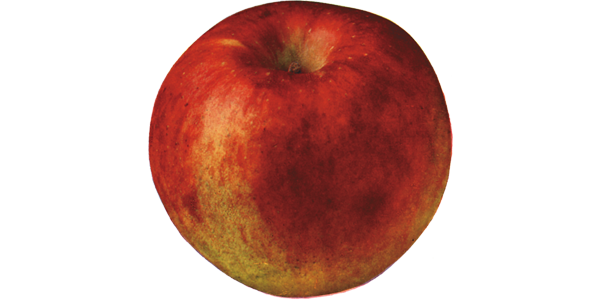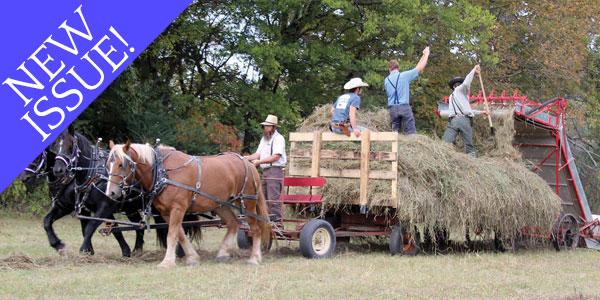
Cultivating the Family Farm
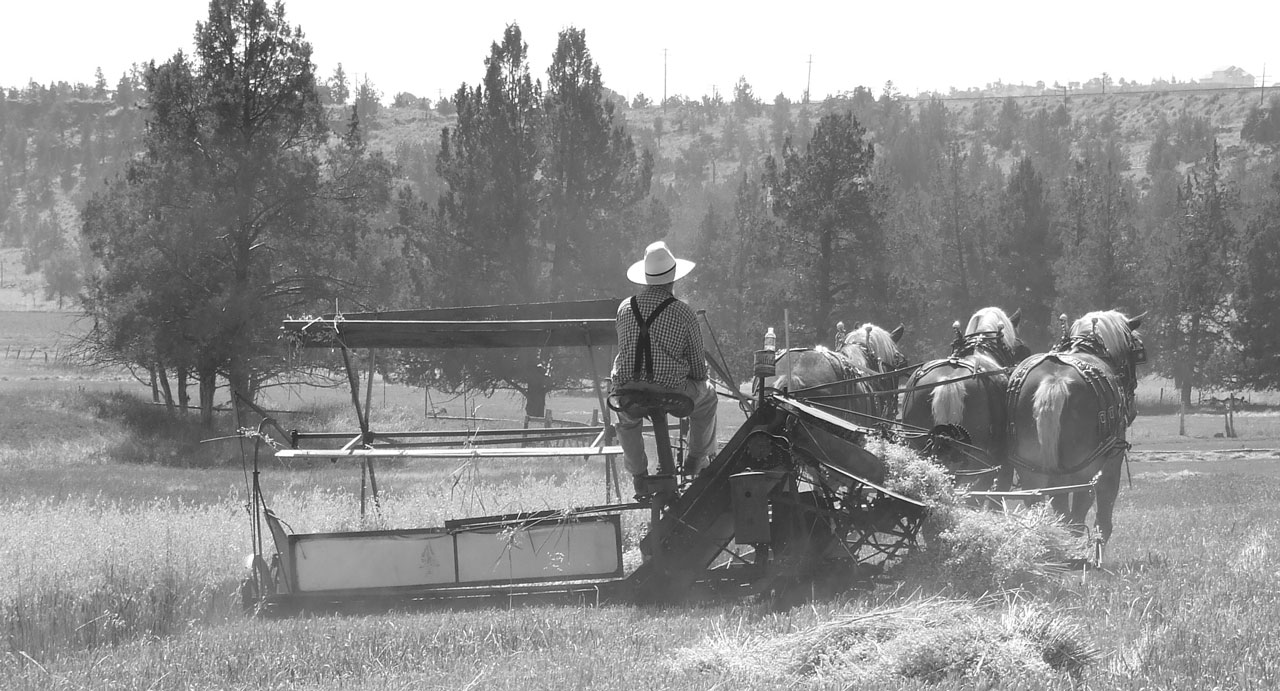
Cultivating the Family Farm
by Lynn R. Miller of Singing Horse Ranch
photographs by Kristi Gilman-Miller
On Nov 10, 2007, Lynn Miller delivered the keynote address at the annual Washington Tilth Producers conference in Yakima. We have received several requests to run the text of that speech on these pages. A few of the remarks were made impromptu and have escaped this encapsulation process. What appears below are the prepared remarks.
The poetry of each motivation holds the seed.
Love hurts but justice is not enough.
What is it we do? Are we farmers or part of the broader farm support community? Or something altogether else?
How do we do what we do? Are we organic farmers? Are we holistic in our approaches? Are we industrial farmers? What morality informs our methods? Do we care?
Why do we do what we do? This is the most important question of all and it informs our best options for the successful cultivation of the small family farm. The poetry of each motivation holds the seed.
But I left something out. That would be the introductory question. Who are we? Who are you? What makes us tick? You can see how it is that what, how and why would answer much of that.
My wife’s cousin is the coach of the Gonzaga basketball team, Mark Few. A couple of years ago, at a family gathering, he expressed to me frustration with one of his new players; a boy who had been raised on a Washington farm. He said that the young man had incredible natural ability but lacked motivation. From me he asked “Lynard, you understand these people, how do I get him motivated?” I know Mark didn’t mean it that way but this felt prejudicial to me. This boy was being apologized for because he had been raised on a farm. It suggests the public sees farmers as a breed apart. But the more I thought about it, the more I could see some truth in the matter. We are a breed apart. We are often motivated in ways quite different from the mainstream. Even so or perhaps because of that, I refuse to be forgiven or excused because I am a farmer. I refuse to be a victim of, or because of, my chosen vocation.
And I WILL NOT APOLOGIZE!
Not so long ago the press was in a tither with the news story that our inimitable V.P. shot his fund-raiser/ hunting partner in the face. Luckily the man did not die from his wounds, and the story bloomed like a giant paper plate full of greasy ketchup-crowned curly fries. Finally Paula Poundstone, the comedian, set everyone straight when she loudly admonished over National Public Radio “People, let it be! It’s over. The victim has apologized!”
Over the course of the last year and a half, Small Farmer’s Journal has been courted by media conglomerates expressing serious interest in acquiring us. In each case the prospective buyer spoke of the certainty that “green” would soon be the winning color in media. At one meeting, high up in a glass and steel skyscraper in Manhattan, the two vice-presidents of this conglomerate, controlling vast holdings in magazines, newspapers, television, movies, music, the internet, and U.S. / European cable infrastructure, were quick to confess that they knew nothing about organic or sustainable agriculture, nothing about environmental issues, nothing about food justice issues, nothing about the politics of locally grown. They told me they were committed to build THE green media conglomerate and they had one billion dollars in cash to spend. They had made overtures to me because their research people had told them they needed to acquire several existing niche market publishing companies with unquestionable credibility and we were identified as one company which might serve the alternative agriculture segment. Green is the future, they said, and they have set out to buy the future. Our conversations came to a polite end when they informed me that no prospective advertiser, not even Monsanto, could be denied space. Ad sales were to be sacrosanct. Editorial content to them is viewed as entertainment with which to entice advertisers.
(Several) weeks ago we refused to run, in our publication, paid full page ads from the USDA which threatened any farmer who failed to comply with the government’s right to collect data. The government ad agency could not believe that any business would refuse thousands of dollars, let alone take such a risky position.
Who are we, you and I, and what morality informs such judgments?
Labeling has become so important to us as farmers. Not just the question of certification and the listing of contents but also the clarification and acknowledgement of our place in the world. The very definitions of our work and lives.
There are piano wires strung tightly across our path forward, at eye-level, throat-level, ankle-level, criss-crossing in a deadly, barely visible web. We collectively helped to string those wires, we handed authority to the USDA and to NGOs and to industry in a blind stupor of gullibility and now we have Hansel and Gretel’s forest to traverse and the witch’s ovens to avoid. But none of it is as bad as it seems for the simple reason that much of it disappears with non-compliance. It is that perfect and hideous nightmare which disappears if you come awake. We still have the right to choose which party we go to and with whom.
At the beginning I asked what, how, and why, informing who. I said WHY is the most important thing of all. Now to confuse matters I want to interject that WHY may owe its ultimate value to how much.
The Hand Off
In the summer of 1986 I was visited on my farm during haymaking by Tom Forrester, two translators and an eighty year-old Japanese dignitary named Tedeo Ichiraku. This man had been the Japanese equivalent of secretary of Agriculture following WWII and is generally credited with industrializing and modernizing food production in that country. Following that term he had an epiphany: he regretted all those things he had set in motion to destroy the very culture of centuries old farming in Japan. He wanted to do something to correct what he saw as the mistakes of his administration. His answer was to form the successful and important organic farming organization in Japan. It was around 1980 that he discovered Small Farmer’s Journal and became a reader. In the mid eighties, eighty years old himself, he saw the end of his life fast approaching and he felt it time to hand off his torch so to speak. When asked to do a presentation to the organic farming folks in California he had Tom Forrester set up a visit to my farm. He thought perhaps I would be one to understand and use his message. And he wanted to see for himself an application of true horse power.
On the day of his visit I was unloading loose hay from a wagon by grapple fork and trolley. Tip, our Belgian gelding, was pulling the haul back rope up the back of the old, large, gambrel-roofed barn. When Ichiraku’s entourage arrived he instantly, in expensive silk suit, trotted to the barn to watch the procedures. Quickly realizing what was involved he informed me, through an interpreter, that he was going up into the hay loft to watch the load come in and dump. My rejection of the idea on the grounds of liability and danger fell on deaf ears. The elder statesman, with assistant, climbed the wooden ladder. When the load came up and through the mow door, eclipsing the light, I heard him cheer in Japanese. As the load rolled along the trolley to the dumping point, his giggles got progressively louder until he shouted something jubilant. When he came down his suit and hair were covered with pieces of hay framing a radiant smile. Later in the house, through his interpreter and Tom, Tedeo told me his life story concluding with these words. “Soon I must die and it is important that I pass to you this discovery which has come to me too late. Organic farming alone is not the answer. When it becomes profitable the big companies will do it and destroy it. The answer is scale. We must do our farming small as the size of a man, as the size of his family. In this way it will belong to each and every one and it will be healthy and strong. You must carry this message, you must tell everyone. Thank you. And thank you for showing me your work. I love your great horse and the hay falling from the sky of the barn. Your farming is good, it is the size of a man.”
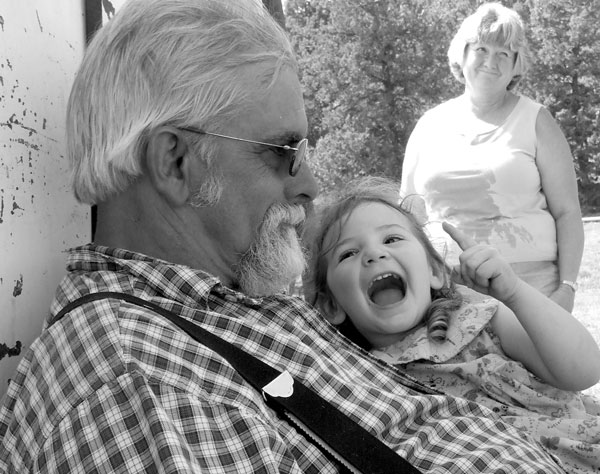
You On Your Own
Scale is ultimately about singularity, it is about embrace, it is about what we can hold, what we can touch, what we may know intimately, what we are able to fully honor, what would know us as important part. It is about being able to laugh at ourselves because we are accessible to ourselves.
We are a force. Not together so much as singularly. We each of us are a force.
There is no denying that in the aggregate we are something altogether ‘other’. We must improve on that ‘other’ without detracting from the critically important singular. So many of you here today embody this singularity.
Your dreams belong to you.
Your plans belong to you as do your operations.
Your successes and failures are your own.
Your frustrations, fears and opportunities fit only you.
Your satisfactions and sense of self worth shape you.
You are singular.
But now, in this crazy and shifting time of environmental, political and economic cataclysm, the collective force and essential security afforded the world by the community of small independent farms is important beyond even the wildest measure. Small farms feed the world. Without small farms the world is no longer fed and the consequences are catastrophic.
We know we must save small farms, preserve them. But both of those measures, saving and preserving, feel all the world like cures to a problem. I think we, instead, must talk and wonder and act about conserving small farms. That approach, conservation, feels more akin to prevention – preparation – parenting. It feels more in tune with growth and life.
We cannot talk about the conservation of the family farm without speaking of the singularity of the farmers. Just as with seed saving, the preservation of the small family farm cannot be done ‘on the shelf’ or in museums nor on living history farms. The institution of the family farm and the community it engenders needs to be ‘cultivated’ in order that it live on. And by cultivation we mean all the work we do from the planting of the seed or the birth of the farm all the way through to harvest of the crop or the transfer of the farm to the next generation. Unless seeds are planted and successfully grown it is only preservation, there is no conservation. The farming and the land are conserved when the farmer protects his or her effectiveness. And when we speak of farming and farmers we know that fertility and effectiveness share aspect. Motivation is a form of fertility. It fertilizes our effectiveness. We put our future as farmers in peril when we deny the elegance of our motivations. That elegance stems from the rhythm and architecture of our enchantment. It’s about magic carefully held, instinctively used, and always revered.
The Blue Corn
Twenty some odd years ago or so I spoke at a Land Stewardship Conference in Colorado. It was there that I met John Kimmey of the Talavaya Center. John told me a story which to this day has stuck with me in haunting ways.
John, as anthropolgist, worked with a native elder in the Four Corners area of the American southwest. He was keen to help to save the agricultural heritage of the indigenous people. The native elder talked to Kimmey of his concern that the saved seed had sat too long on his shelves. The young people did not care. He worried about the strength and vitality of the seed. After gaining the elder’s confidence, John was given a jar of a fading blue corn seed. The old man had taught John about planting sticks, planting rattles and about the songs to sing when growing corn and beans. He told John to plant half of the seed in a plot of concentric circles. The other half of the seed was to be planted “out of earshot” of the circle plantation. Kimmey was to plant the second portion in a traditional grid of parallel rows. The circle was to be done with planting stick, rattle and the appropriate songs at the right times. The traditional rectangle of parallel rows required no special treatment or ritual. Following the instructions to a “T,” John was amazed at the difference between the two plantations. The circle grew strong and luxurious while the rectangle looked ordinary. And when harvest time came, the circle produced vibrant blue seed quite different from the yellow seed of the straight rows. John took the results to the elder, excited to share the outcome. The elder asked Kimmey what the bright blue seed meant and John said he wasn’t sure. The elder hit John with the planting stick and, tearful, he said “Don’t you see? The seed has remembered the songs.”
Completing the Definition
You as singular farmer, as singular would-be farmer, you belong to us as part of our collective definition, part of our collective songbook. And that definition is a work in progress, yet to be completed. I believe we must take the steps to complete the definition, and write the last songs, before we lose what we have worked so hard to build.
We have this arcane thing society has identified as intrinsically valuable, we call it the small family farm, others call it by different names. Over the last almost four decades we together and individually have worked to give new aspect and vitality to our working understanding of what a humane small family farm is and can be. In our midst are examples of exciting fertility and economic vitality as the result of the intoxicating, almost erotic, blend of the best traditional methods with whole new approaches. Stellar organizations such as yours continue to work brilliantly to protect and pass the word of these astounding new possibilities. But with new successes come the pressures which threaten to dehumanize, to desensitize, to deaden this evolving new farm. Though it may be predictable that significant successes with new approaches would move us towards industrial models, it is NOT inevitable.
People ask me ‘how is it you get so much done’ when what they want to ask is ‘what keeps you going?’
I try, whenever my morning suggests a tedium or predictability, to sit still and concentrate on a simple mantra. I admonish myself to “pay close attention, very close attention to this day.” That little exercise seems to give me back my enthusiasms and entice me to think wider about that coming day. But, even for me after all these years, I will confess to you that on some particularly unfortunate and moronic days I get down and wonder at my own ineptitude.
I realize that for some of us it has become about watching ourselves get old, watching the work we loved get old… It doesn’t have to be that way. We must work to avoid this.
You are an instrument which must not be wasted. The key lies within your motivations. The more elegant they are the greater your energy. When I say you must not be wasted I do not mean that you need to work harder. I use the word wasted in the vernacular as in burnt-out. You are a vital instrument which must not be burnt-out. There was an elegance in those reasons, wishes and visions which brought you originally to this work. When you allow yourself to get ‘wasted’ that elegance disappears and your motivation wanes.
When you feel yourself at risk of burning out (or long before) you MUST take time off to rest and do other things.
Keeping it Altogether
The poetics of an elegant motivation include Insurance, Assurance, and Relief, three things which can be difficult or impossible to purchase. But they are things which we might gather to us together.
I have for decades trained horses for work, I have learned that the best animals are those who are worked regularly and who are always in training. Each time I allow an infraction of my working standards of conduct I am telling the animals that the rules don’t count. This makes of them lesser work mates. I screw them up with my laziness. When I discipline myself to constantly reinforce the behavior rules for the horses all of us are better.
The same thing may be said of us as farmers, only we are in charge of our own training. Each time we let rules of behavior or work slide we become less effective. Tedium will tempt us to cut corners, to court the more simply predictable at the expense of the magic that did and will and could motivate us.
Because cultivating the family farm is about conserving this model unit, we all need these ‘units’ to do more than survive, we need them to thrive. The difference between surviving and thriving is like the difference between subsistence and self-sufficiency. Distilling further, it’s not about family farms plural, it’s about these in the singular, each one. And further yet it’s all about the individual. What do you want, what do I want, what do we want?
The very nature of the farming endeavor would seem to suggest individual connections with growing, nurturing, and creating. Though some might not think of it in this way, we are drawn to this involvement with the natural world because it just might make us feel as a worthy human. We feed the world, the world needs fed, we feel good about what we do so we continue, the system continues (in spite of official efforts to the contrary). All of it depends on us feeling good about what we do. If that isn’t there the rest crumbles and we no longer have small family farms. So, just what would make us feel good?
Is it money? Is it success? Some of us have fallen repeatedly for the bottom line trap. We come to believe that if we could just get our sales up to X all would fall in place. While there is much work to do and tremendous potential within the questions of pricing and marketing we are at risk of accepting the inevitability of the industrial model. “If only I could get a quicker way to load a thousand more bags of carrots?” “At $5 per pound we’re selling every broiler and we have a waiting list. And that’s with 100 six pound birds. We could easily sell 500 birds. But there has to be a more efficient way to slaughter these birds?” Sometimes we get so wrapped up in the posture of the perfect dive into the pool of growth that we forget to check to see if the pool has any water in it. It’s like bungee jumping with a cord that is a foot too long.
Mixing it Up
We need diversity in our lives as much as in our farming. Without it the tedium of process sets in and destroys us in turn destroying the fertility of the farming and of our dreams.
Forgive me from reading, at this point, an excerpt from my book Farmer Pirates and Dancing Cows:
“We are told we must narrow our focus to a particular vocation or discipline and work hard on that one thing otherwise we will diminish our chances for success. The man who would be a cabinet maker and a botanist is asking for trouble. the woman who would be a dancer and a cellist is doomed. The child who would pursue automotive engineering and poetry is labeled a self-destructive curiosity. The best and most dynamic individual examples of diverse enterprise are frequently hidden from full view as an act of self-preservation. We succumb to the pressures of family and community and deny the truth of our potential. We follow, short-sighted, the social edicts of our time. The result is often an unhappy life, ironically even when we are immersed in the work of our choice.
“Alexander Borodin was a chemist and a surgeon, but we perhaps know him best as a classical composer of the highest rank. We measure him today by the lasting power and grace of his music. By all accounts he was a happy, fulfilled man. Yet in his day, peers within the communities he worked would have doubtless wondered about his seriousness pointing to his various vocations as indication that he seemed spread thin. I prefer to think of him as spread thick.”
I am a painter and a writer and a horseman in concert with my farming. Though often the competition for my limited time is fierce, I refuse to trade off any of those aspects of my working life. They inform one another. For example, with my painting I am always in pursuit of an elusive quality to my work which I identify as changeability. I want to create pictures which are constantly shifting, changing, and challenging the viewer. I want this because I have identified for myself that when a picture, or a piece of music or a farming labor becomes predictably static, it also becomes tedious and eventually even something to avoid. I simply no longer want to spend time with it. And the opposite is true, when a piece of music, a farming labor or a painting is, upon each return, fresh and exhilarating, this permanence to its aspect refreshes me, lifts me, it invigorates me.
That is why, after almost forty years I still choose to depend on draft horses as motive power for the farming. I never tire of them or the nature of my working partnership. It is always fresh and intriguing. In the oft quoted words of my mentor Ray Drongesen, “The longer I work them, the less I know, and the easier it gets.” There are many other choices to farming that can have the same refreshing aspect. They can be identified for most any operation. And they need to be utilized to keep the enchantment in our work.
I know I am speaking of something that is not quantifiable, something which is intangible. It doesn’t fit anywhere on the balance sheet. But is that necessarily true? If we can feel the force of such things does that not give them shape, form, weight and aspect that we might hold? It has been said that the aspect of which I speak is actually nothing more that a shift in perspective. Alter how you see a thing by moving slightly and for a moment at least your measure of that thing alters as well. “So what?” The economist would say. So EVERYTHING I answer. We are talking about enchantment, a thing we must protect and grow if this small family farm idea is to continue beyond us.
We chose this life of farming. If we chose it because we were attracted to this way of life, then we have more than a little WAX in our nature. And that wax makes us melt in the presence of great, specific sentiment. This is clear indication that the enchantment is close at hand. But that same wax would make us vulnerable to the tedium, stress, terror and melancholy of our taxing moments; when the magnificent crop is destroyed overnight by bug or blight, when the prize livestock dies prematurely, when the pump burns up, when the barn burns down, when the loved one disappears. When of a moment we find ourselves muttering, “I can’t take this any longer!”, we can feel the wax of our better nature melting. That’s when it’s time for a break, a holiday, a vacation, even an extended sabbatical. Our North American culture disdains rest and recuperation. That’s a mistake that our culture pays for in many ways. With farming no one is telling us, as independent operators, that we have to work 17 hour days, day after day. We tell ourselves this malarkey. We can just as easily tell ourselves that we need time off. And I don’t mean a day or two, I mean serious time away from the farming and the farm, relaxing, doing something altogether different, seeing new people and things, following a secondary dream, sharing experiences with family and friends. Revitalizing ourselves. Because we need distance to clarify our vision, we need to be able to back up, way back, and see what we are doing. And that distance can be more than a clarifier, it can be rest pure and simple.
Studs Terkel remembered a taped interview he did years ago with a poor, uneducated but very bright single mother in Chicago. She had never seen a tape recorder before, let alone been recorded. When the interview was over he played the tape back for her to hear. As she listened her eyes got big and her hand went to her mouth. And when the tape was done she turned to Studs and said “I had no idea I felt that way.”
The distance will help us to see.
But when we have seen, we need to move back in close, so close that we find ourselves inside. Because today we need to circle all of our ideas pointing them, nose in, so that they must eventually see one another. That center where the sight lines cross will electrify and feed back to each the tangential possibilities of a nearly infinite number of variations, all on a theme of right livelihood. It’s about cultivation as an act of self-preservation and conservation. Abstract yes, but it can be actualized.
Sometimes the impossible utopian view gives shape to workable even useful suspicions. I believe what we lack as this fractured and far flung new farm community is the actualization that would come from a realized sovereignty of our collective identity. What we lack is a physical address to our collective nerve and value core. Imagine with me that somewhere here in Washington there was a mixed crop and livestock farm upon which, in one corner there was a dedicated cemetery. In the second corner was a one room school house with adjoining facilities for farming workshops and clinics. Go to the third corner and see a small out-patient clinic, a country hospital if you will, where emergency medical treatment and birthing is looked to. Now in the fourth corner see, with the perpetual backdrop of the working farm, an assisted living facility for senior farmers and their families. See this facility under the umbrella of a membership which might facilitate farm caretaking services for farmers who need sabbaticals. See also that this membership pools its numbers to acquire an insurance package making this commodity affordable and accessible to membership. What we have with this vision is Insurance Assurance and Relief.
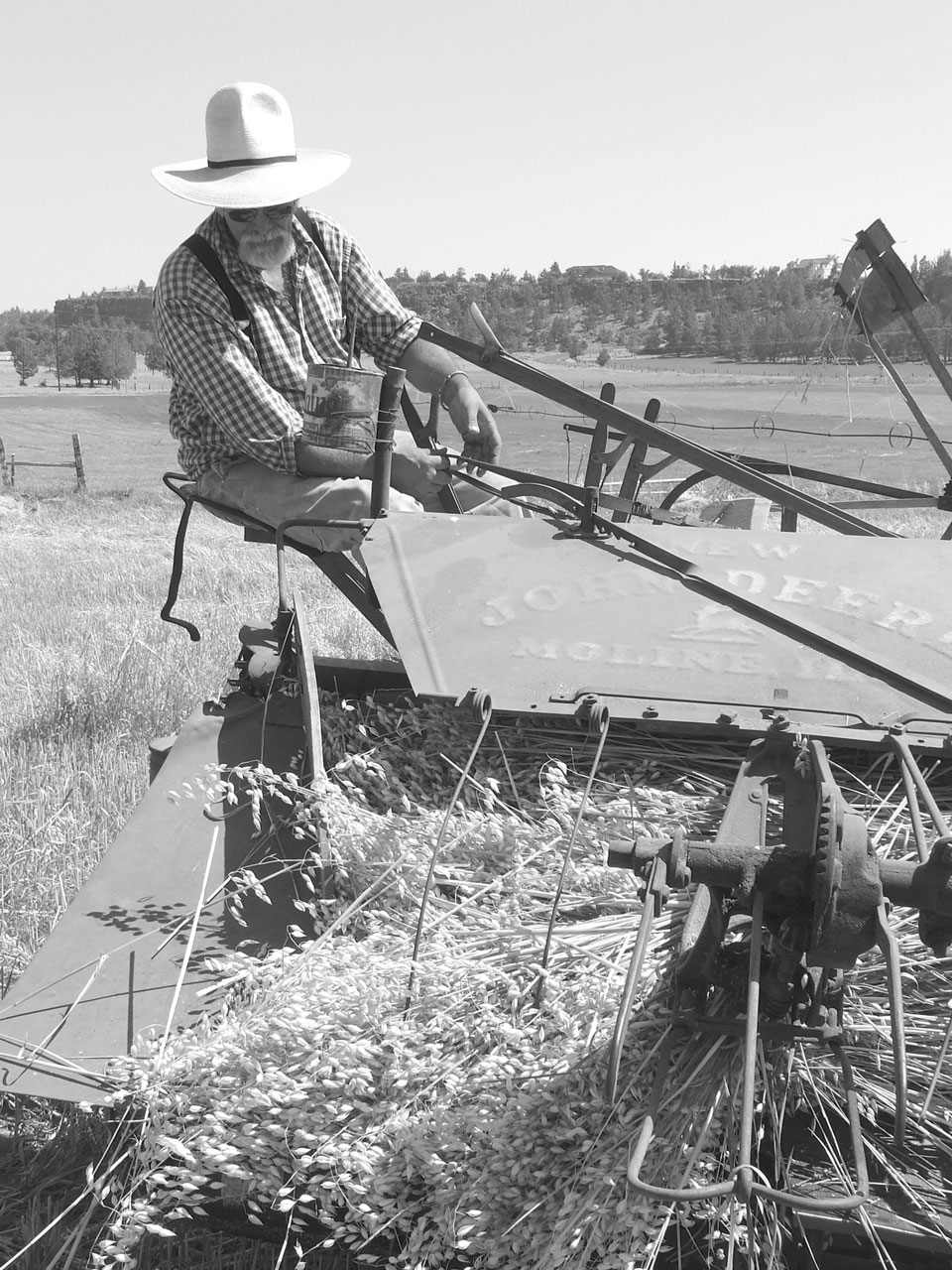
As the Answer
Whether it be with a version of the hypothetical nerve-center farm I described or otherwise, what we are, what we do, the very human scale of our individual efforts, all of us singularly and together, we have what it takes to save this beautiful planet.
I can see it. I can see it here in the central valley of Washington and in Vermont, I can see it in the Carolinas, in New Brunswick, in Botswana, in Bolivia, in Chiapas, in Serbia and in Louisiana. And with that vision comes the imagined outcome, the shift in economic priorities, the symphonic sovereignty, the full-on social empowerment, the return to a right etiquette to our interdependence and gratitudes.
Love hurts but justice is not enough.
The poetry of each motivation holds the seed.
Please pay close attention to this day because who we are may be the thing that saves this beautiful planet.
